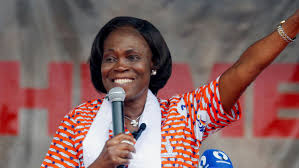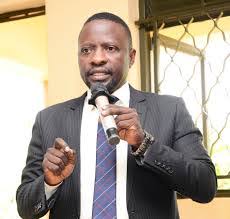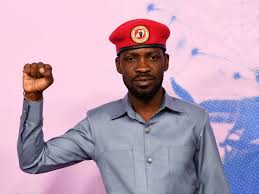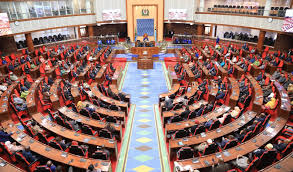Simone Ehivet Gbagbo, once one of the most powerful and controversial women in Ivory Coast, is staging a political comeback.
The 76-year-old former First Lady, long known as the “Iron Lady” of Ivorian politics, is running for president in Saturday’s national election — this time without her ex-husband, former President Laurent Gbagbo.
Her candidacy signals a new chapter not only for her but also for a nation still healing from years of political turmoil and conflict.
Simone Gbagbo is the presidential candidate for the Movement of Skilled Generations (MGC), a party she founded in 2022. She is among the few opposition figures cleared to contest against the incumbent, President Alassane Ouattara, who is seeking a fourth term amid criticism from opposition groups who accuse him of tightening his grip on power.
Though analysts believe Ouattara is favored to win, Simone Gbagbo’s candidacy is seen as symbolically important — representing the old opposition’s survival and the possibility of a political transition beyond long-serving leaders.
Simone Gbagbo’s political journey has been anything but ordinary.
During her husband’s presidency from 2000 to 2011, she wielded significant influence behind the scenes. Her strong personality and close involvement in government earned her both admiration and fear.
“All the ministers respect me, and I am often placed above them,” she once told L’Express, a French newspaper.
After the 2010 disputed election, Laurent Gbagbo refused to concede defeat to Ouattara, triggering months of deadly clashes that left around 3,000 people dead.
The couple was arrested in April 2011 at their residence in Abidjan, marking the end of an era.
Laurent Gbagbo was sent to the International Criminal Court (ICC) in The Hague, while Simone faced trial at home. She was sentenced in 2015 to 20 years in prison for “crimes against the state.”
In 2018, President Ouattara granted her amnesty, a move aimed at promoting national reconciliation.
In 2021, Laurent Gbagbo officially divorced Simone after decades of political partnership and marriage, citing “irreconcilable differences.”
Unshaken, Simone reinvented herself as a solo political force.
A year later, she founded the Movement of Skilled Generations (MGC) — a party she says is built on social justice, peace, and national unity.
“I want to bring Ivorians together again and build a country that serves everyone,” she told supporters during a campaign rally earlier this year.
Political analysts say Simone Gbagbo’s chances of victory this year are slim.
Her party is still young, and many Ivorians associate her with the violent past of the Gbagbo regime.
However, historian Arthur Banga told Reuters that her influence could grow after the elections, especially with major figures like Laurent Gbagbo and former Credit Suisse CEO Tidjane Thiam barred from running.
“She is positioning herself for the future,” Banga said. “If she continues to strengthen her base, she could become the face of the opposition.”
Simone Gbagbo’s campaign focuses on national reconciliation, economic sovereignty, and youth empowerment.
She has promised a general amnesty for political and military prisoners, support for returning exiles, and programs to rebuild trust between communities divided by years of unrest.
Her economic vision includes pushing for “true monetary independence” by replacing the CFA franc, which is pegged to the euro, with a new regional currency shared among West African nations.
She has also expressed solidarity with the Alliance of Sahel States (AES) — Burkina Faso, Mali, and Niger — whose military governments have often clashed with President Ouattara’s administration.
Earlier this month, Simone’s campaign received a major boost when Charles Blé Goudé, a former youth leader and close ally of Laurent Gbagbo, endorsed her bid. Both Blé Goudé and Laurent Gbagbo were acquitted by the ICC in 2019 of crimes linked to the 2010 post-election violence.
Her supporters see her as a symbol of resilience and redemption — a woman who endured prison, divorce, and political defeat, yet still stands to fight for her vision of a new Ivory Coast.
Ivory Coast remains one of Africa’s fastest-growing economies, driven by cocoa exports and foreign investment. But the country still faces deep political divisions, youth unemployment, and rising costs of living.
As Ivorians head to the polls, many are watching to see whether Simone Gbagbo’s comeback marks the rebirth of an opposition movement or simply a farewell to an era of familiar faces.
“Let’s not forget that 2030 will be different,” analyst Banga said. “This election may shape the next generation of Ivorian politics.”



